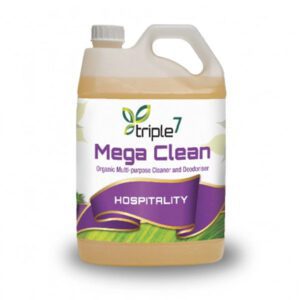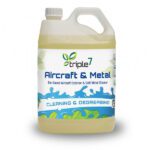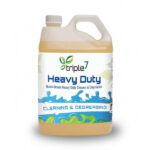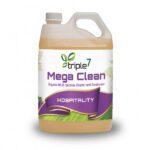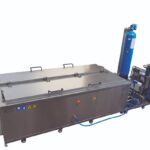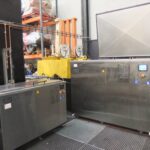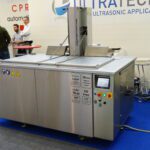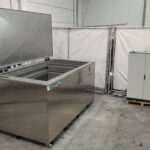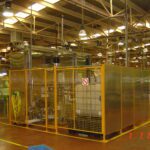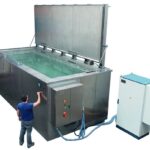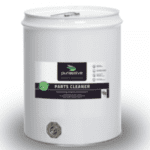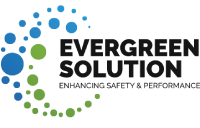Enhancing Efficiency and Operational Excellence: Indian Railways' Transition to Bio-Based Cleaning Solution for Wheel Bearings
Case Study-1
- Home
- Case Studies
- Enhancing Efficiency and Operational Excellence: Indian Railways’ Transition to Bio-Based Cleaning Solution for Wheel Bearings
Enhancing Efficiency and Operational Excellence: Indian Railways' Transition to Bio-Based Cleaning Solution for Wheel Bearings
Introduction:
Indian Railways, one of the world’s largest railway networks, has been using kerosene as a cleaning solvent for bearings in their carriages, coaches, and wagons for many years. However, the conventional cleaning process with kerosene had certain drawbacks, including productivity limitations, extended cleaning times, and heavy labor involvement. To address these challenges and improve efficiency, Indian Railways recently implemented a two-stage ultrasonic cleaner with a pressure washer utilizing a bio-based cleaner called Triple 7 Aircraft and Metal Cleaner, which is a flash rust preventive solution providing dry rust protection. It leaves dry impregnated colorless coating to prevent rust on steel and other soft metals.
Challenges with Kerosene Cleaning:
The use of kerosene for bearing cleaning posed several challenges for Indian Railways. Firstly, kerosene was not an environmentally friendly option due to its high carbon footprint and potential for soil and water pollution. Secondly, the cleaning process using kerosene was time-consuming, requiring significant manual labor and multiple iterations for thorough cleaning. Lastly, productivity was hindered by the extended downtime for bearing maintenance and cleaning, leading to reduced operational efficiency.
The Transition to Triple 7 Aircraft and Metal Cleaner
In an effort to overcome the limitations of kerosene-based cleaning, Indian Railways collaborated with a leading bio-based cleaning solution provider to introduce a more sustainable and effective method. Triple 7 Aircraft and Metal Cleaner, a bio-based cleaner derived from natural ingredients, was identified as a suitable alternative. The cleaner is non-toxic, non-flammable, flash rust preventer and readily biodegradable, addressing the environmental concerns associated with kerosene. Importantly, answers the queries on how to prevent flash rust formation on low carbon steel parts.
Benefits and Impact:
The implementation of the two-stage ultrasonic cleaner with a pressure washer and Triple 7 Aircraft and Metal Cleaner brought about several notable improvements for Indian Railways. Firstly, the bio-based cleaner’s superior cleaning & anti flash rust properties reduced the cleaning time significantly, resulting in increased productivity and faster turnaround times for maintenance and repairs. This led to enhanced operational efficiency and improved availability of rolling stock.
Moreover, the non-toxic nature of Triple 7 Aircraft and Metal Cleaner ensured a safer working environment for the railway personnel involved in the cleaning process. It eliminated the health risks associated with exposure to hazardous chemicals and reduced the need for personal protective equipment, further streamlining operations and reducing costs. The important objective of dry rust preventive cleaner which was able to prevent flash rust and ensure long term surface protection from corrosion was also achieved.
The reduction in labor involvement was another significant advantage of the transition. The two-stage ultrasonic cleaner and pressure washer automated much of the cleaning process, reducing the need for manual labor and freeing up valuable human resources for other essential tasks. This resulted in a more efficient allocation of manpower and reduced labor-related expenses.
Furthermore, the adoption of the bio-based cleaner aligned with Indian Railways’ commitment to sustainability and environmental responsibility. Triple 7 Aircraft and Metal Cleaner’s eco-friendly composition minimized the impact on soil, water bodies, and the overall ecosystem. This shift toward a greener cleaning solution showcased Indian Railways’ dedication to reducing their carbon footprint and promoting sustainable practices within the industry.
Heavy-duty bearings play a critical role in the functioning of railway carriages, coaches, and wagons. These bearings are designed to withstand heavy loads, vibrations, and harsh environmental conditions. They provide support and enable smooth movement of the wheels, axles, and other components of the railway vehicles. The operations involved cleaning the 3 types of bearings:
Tapered Roller Bearings:
Tapered roller bearings are commonly used in railway applications due to their ability to handle both radial and axial loads. They consist of an inner ring, an outer ring, tapered rollers, and a cage. These bearings are capable of accommodating heavy loads and are commonly used in wheel sets, axle boxes, and traction motors.
Cylindrical Roller Bearings:
Cylindrical roller bearings are suitable for high radial loads and moderate axial loads. They have high radial rigidity and are commonly used in axle boxes and gearbox applications in railway vehicles. These bearings feature cylindrical rollers and a cage to separate and guide the rollers.
Spherical Roller Bearings:
Spherical roller bearings are designed to accommodate heavy radial loads and misalignment. They have two rows of symmetrical spherical rollers and a common outer ring raceway. These bearings are commonly used in applications such as traction motors, gearboxes, and wheel sets in railway vehicles.
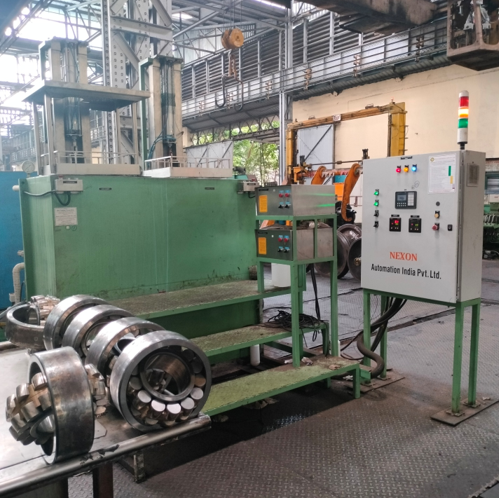
Conclusion:
The Indian Railways’ implementation of a two-stage ultrasonic cleaner with a pressure washer utilizing Triple 7 Aircraft and Metal Cleaner( anti flash rusting degreaser) has revolutionized the process of cleaning heavy-duty bearings in railway carriages, coaches, and wagons. The transition from kerosene to the bio-based cleaner has resulted in increased productivity, reduced cleaning time, enhanced operational efficiency, and minimized labor involvement. Furthermore, the adoption of a sustainable cleaning solution reflects Indian Railways’ commitment to environmental stewardship and sets an example for the entire railway industry.

